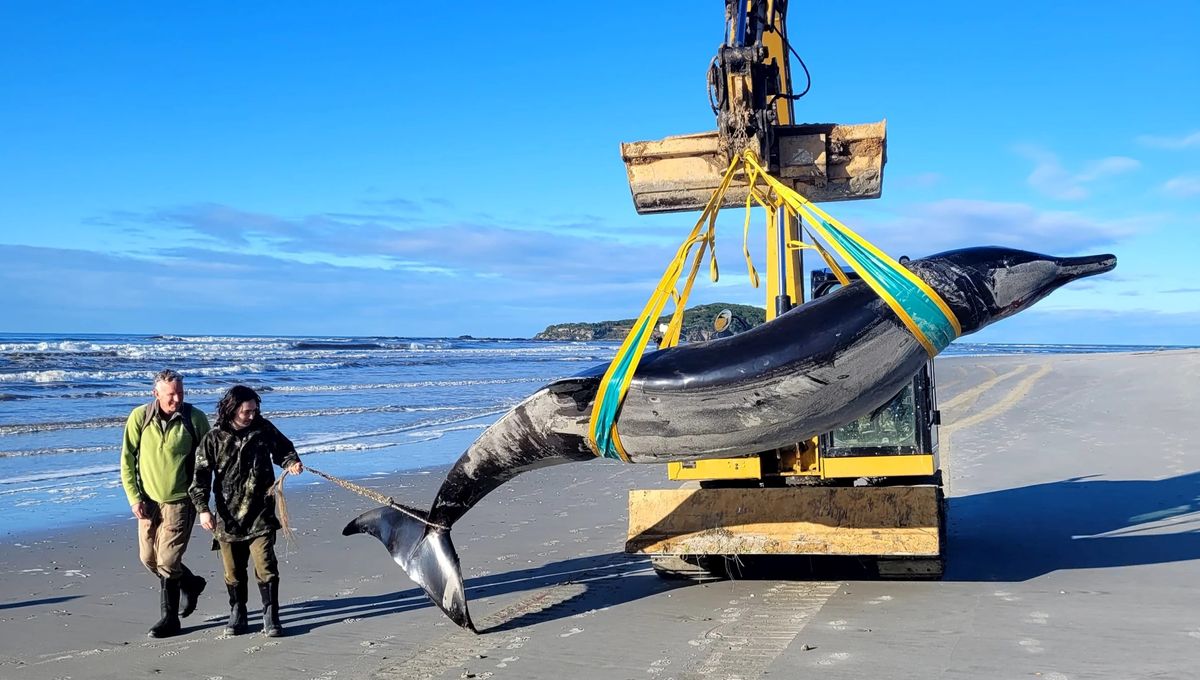
A spade-toothed whale, the world’s rarest whale species, has been found washed ashore on a beach in Otago, New Zealand, one of only six specimens to have ever been documented.
While marine mammal strandings are relatively common in New Zealand – there are around 85 per year – when experts from the Department of Conservation (DOC) and The Museum of New Zealand Te Papa Tongarewa turned up to investigate reports of a dead, beached whale near the small fishing village of Taieri Mouth on July 4, what they saw may not be common at all.
They believe the 5-meter-long (16-foot) male beaked whale to be the rarest whale species of them all – a spade-toothed whale.
Beaked whales are fairly elusive as it is, as they typically swim fast and deep and don’t make such a prominent spout compared to other types of whale when breathing at the water’s surface.
Spade-toothed whales, however, really do take the rarity biscuit – only six specimens, including this latest find, have ever been recorded. While its identity still needs to be confirmed via DNA testing, if all goes as expected, this makes the male that washed up in Otago a particularly significant find.
“Spade-toothed whales are one of the most poorly known large mammalian species of modern times,” said DOC Coastal Otago Operations Manager Gabe Davies in a statement. “Since the 1800s, only six samples have ever been documented worldwide, and all but one of these was from New Zealand. From a scientific and conservation point of view, this is huge.”
Until 2010, the species had only ever been known from skeletal remains found in New Zealand and Chile, with scientists using these to declare the spade-toothed whale as a brand-new species back in 1874.
The first intact specimens of a mother and calf were then discovered in 2010, with another single specimen following in 2017, finally allowing researchers to properly describe the species’ color pattern.
While much of what there is to know about the spade-toothed whale is likely to remain a mystery until we see one alive, the freshness of this latest specimen might provide the first-ever opportunity for dissection, which could provide all kinds of insights into its biology.
Having already taken samples to get genetic confirmation of its identity, the whale has since been placed in cold storage. It’ll be kept here until decisions have been made about how to best move forward – this might take a while, said Davies, given the potential importance of the discovery.
The DOC are also working with Te Rūnanga ō Ōtākou as part of this process. “It is important to ensure appropriate respect for this taoka is shown through the shared journey of learning, applying mātauraka Māori as we discover more about this rare species,” concluded Te Rūnanga ō Ōtakou chair Nadia Wesley-Smith.
Source Link: World’s Rarest Whale Washes Up On New Zealand Beach